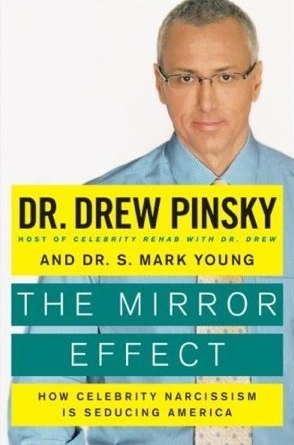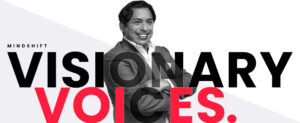Twitter is a phenomenon unto itself. Which is why, in the study of Social Media, Digital Anthropology and Sociology prevails.
Technology indeed facilitates interaction while also introducing us to nuances that transcend the parameters governing natural conversations and asynchronous dialogue into new forms of conversational threads and networks.
Twitter is among those networks actively studied by many (myself included) as it seemingly defies the laws of natural flow and engagement. The foundation that makes Twitter work is also the very essence that should prevent it from working at all.
In Social Media, psychology and the study of the mind now also plays a role in understanding the context to those affecting and affected by online behavior.
The Twitterverse and its supporting ecosystem is an anomaly that may represent as Dr. Drew Pinsky captured in our recent conversation in Los Angeles, “potentially a place where pre-existing pathologies are freed and where modalities are acted out.”
Is it fueled by narcissism and self-promotion as so many claim?
Dr. Drew believes that acquired narcissism does not exist.
In his research, he has found that the amount of time someone spends in a new medium has zero impact on their narcissistic impulses. Meaning that if they are narcissistic prior to their exposure to Twitter, they are most likely prone to egotism in their behavior on Twitter – not because of Twitter.
As Dr. Drew observed, “After a certain stage of development, our environment does very little for us.”
He did however, muse on whether or not today’s youth are living life like a reality show with social media’s magic portal serving as their stage, empowering them to “act out their narcissistic impulses into the world.”
I believe this is the case and therefore it brings the uncomfortable conversation of individual value systems to light. It’s one of the reasons why I created a Social Compass to serve as our moral compass in professional online engagement.
Dr. Drew advocates a deep understanding of the importance of relationships in the real world in order to foster and cultivate meaningful connections online.
In our discussion, I shared my theories suggesting that Twitter and other social networks are transforming and augmenting how we form and manage relationships, creating lineages that reinforce “relations” instead of relationships, and in many cases, creating hierarchies that introduce us to a new dynamic that may actually engender micro-celebrity complete with supporting fandoms.
I also proposed that in Social Media, with an emphasis on Twitter, that we are creating a new generation of digital extroverts who gain confidence in online interaction reinforced by every new update, follower, retweet, public @ (acknowledgment), and linkback. I then suggested that this may actually have a positive impact on society as, we then carry this new found courage back into the real world, supported by our invisible army of supporters who define our social graph. I call this, until I can come up with something better, the “Verizon Network” theory. We carry this unseen support framework with us wherever we go.

Dr. Drew listened, nodded his head, and with a pensive and optimistic beam responded, “I agree with that. We have to tolerate closeness and build sincere bonds through empathy.” He continued, “Yes, enjoy your Twitter, but live life through a cultural ethos that recognizes the importance of ‘real’ relationships. Ensure that you contribute to healthy families and value systems. it’s what gives life its meaning. Live by that credo.” He concluded, “It’s what I tweet about…”
Indeed, a vast network of socialites who publish but don’t listen, who broadcast but don’t feel what surrounds them, potentially contribute to a global epidemic of empathetic failure.
As Dr. Drew believes, we must, “create friendships and ties that contribute to social good. Aggregate emotions and intelligence and embody it in your endeavors.”
Please also read, “Make Tweet Love.”
Connect with Brian Solis on:
Twitter, FriendFeed, LinkedIn, Tumblr, Plaxo, Plurk, Identi.ca, BackType, Posterous, or Facebook
—
Have you bought the book or the poster yet? (click below to purchase):








waw.. fantastic!!
You rock
denispaulvc RT @briansolis The Psychology of Twitter with @DrDrew http://bit.ly/MJjD3
I was a psychology minor in college so I totally love this aspect of social media. Kirtsying right now.
🙂
Your “Verizon network” theory has certainly held true for me. In fact, I've taken a number of Myers-Briggs tests, which (among other things) measure your rate of extraversion to introversion. I'm still an introvert, but you can literally see how I've crept more towards the center of the spectrum after years of participating in social media. Aside from that, my friends and family will attest to the fact that I'm a more social person in real life now than I used to be. Part of that may be just becoming a more mature and well-rounded person, which comes with age. But I do think you're on to something. 🙂
Very interesting! Thank you for sharing…
What a great thought provoking post. Digital extroverts, micro-celebrities – it all rings true for us.
Thank you!
Highly insightful. I'd been circling my finger around this concept for some time, but was unable to capture it the way you have.
I agree with Dr. Drees, I think that Social Media in general and Twitter in particular, enhances, if not excarbates and sometimes even aggravates, our formerly acquired social behavior. I take it that you experience in the US as w do i Canada the misdemeanours of the “King Child” generation (25 less), raised/spoiled by the Gen X and spoiled by the Boomer Gen, their grandparents. Many of this “King Child” generation are experiencing big problems adapting to the rules of the business world; actually expecting to get whatever they want just like the way they were brought up into this world. In their case, Social Media exacerbates an already unbalanced behavior/belief; that is, I got everything I wanted from my family so now that I'm famous on the Net, I'll get everything I want from/in the world !!! But hopefully, for time to time, as Brian said, it'll provide the initial dose or lack thereof of courage necessary to a better “real” social life.
Brian – Thank you for this. I'm so tired of seeing the 'social media' buzz word, having been around web marketing way before it ever happened. People forget that good marketing is based on truly being able to understand (and God forbid passionate about) humans, their emotions, their individual approach to connecting with other humans, etc. Finally a good dissection of what all this is REALLY about. Terrific article.
It's my pleasure…thank you very much for sharing your thoughts! You're right, this is less about “people” per se and more about who people are and what they represent.
Yep. I don't think many people approach marketing/pr/sales with the progressive mindset to accomplish their vision. Maybe we're all too busy now to remember to? We all need to focus a tad more on the bigger picture.
Very insightful post. Thanks
To a large extent I really think it is fueled by self promotion. I would say 70% of people are there to sell or promote something. The problem is that you can get an idea off the groun or traffic to a website instantly and very few other platforms offer that.
Great post.
I am not sure where I fit on the social graph since I am social at work and I like being surrounded by people so this is an online extension. But at the same time, I still clam up around people who I don't know and if they know me it is still strange. That could just be human nature.
I especially agree with this statement, “we are creating a new generation of digital extroverts”. in creating these “digital extroverts”, it is really opening the minds of those who were comfortable within their own world. I like to think of myself as a good balance between an introvert and extrovert. I know when it's appropriate; however, one problem I have and am improving upon is being the one to reach out as opposed to waiting to be contacted. It's allowing me to really provide useful insight that otherwise might not have happened if I just stood back and waited.
Great post and I have to say, those are some great writing skills.
Brian – great post…Twitter has “changed” me in many ways…I am becoming the “digital extrovert” you describe. I've found that some would argue that social media is by nature a type of isolation – after all you are “hiding” behind your computer or other piece of technology as you Tweet.
In my case though Twitter has actually made me into a more “social” person in real life….precisely because of …”who gain confidence in online interaction reinforced by every new update, follower, retweet, public @ (acknowledgment), and linkback.”
I have my social army behind me and they are a group of amazing individuals!
Like this…Thanks!
Are people with Aspergers who choose twitter contributing to global empathetic failure?
That is a theory I have always subscribed to myself. Like the line “acquired narcissism doesn't exist”. Exactly. It's just reinforced in today's social media / networking environment.
Thoughtful post. I wonder though what the correlation is between digital extroverts and extroverts in real life? Twitter empowers voices that otherwise may not speak up, which has huge social benefit. But the move from being an online voice to being an offline presence seems to be the necessary next step.
Digital extoverts? Yep, how true. I do wonder how how extrovert they are offline. Great insight.
What's up with your facial expression? Are you taking a poop?
“After a certain stage of development, our environment does very little for us.”– This statement has some merit, but the Zimbardo's and Skinners of the world would greatly disagree. Zimbardo's prison studies proved who quick we are to assume a role that is given to us. If we want to become prominent in the social media landscape we are almost forced to assume a role or niche. It's tough to be a jack of all trades and still be widely known.
Skinner argued his theory of operant condition affecting behavior. I find this to be unbelievable true on Twitter. People crave the positive reinforcement of RTs and @replies, while fearing the negative and lack of attention.
I agree with elements of this posting, in particular the comment “Dr. Drew advocates a deep understanding of the importance of relationships in the real world in order to foster and cultivate meaningful connections online.” This depth of analysis of the real world behaviour, motivation and psychology of users is lacking in the digital space. This is surprising given the wealth of existing evidence based knowledge.
It seems to me that the term social media is symptomatic of the previous lack of relative depth of interaction fostered by previous means of digital collaboration and communication. However in relation to real world social engagement, the limited emotional bandwidth of digital tools, and their lack of the additional dimensions of real world social engagement – physical mirroring, pace, dynamic conversational turn taking, gestures, silences, etc – places them at a real disadvantage. One could argue that for these reasons when one engages via digital social tools one is going through an autistic interpreter. One who does not comprehend any real emotional and basic social interaction channels, and only reports what is said not how it is said.
Twitter contributors seem extrovert in that they put their views or status or thoughts out there, for the world to consume. But this extroversion (if that is a word) is only successful in the minority of cases, ie so many tweets are cast into the digital winds and fly by un-noticed by many or any others. Surely the average Twitter poster is an extrovert vainly seeking an audience.
I thouroughly agree with this part: “Yes, enjoy your Twitter, but live life through a cultural ethos that recognizes the importance of ‘real’ relationships. Ensure that you contribute to healthy families and value systems.”
You can use Twitter as an addition to your life, not live to add your life to Twitter.
a new-found, online 'micro-celebrity' status can gravitate to self-indulgent behavior. And that doesn't help real world social behavior at all. you are a big turn-off in the real world if you let social network hierarchies go to your head.
a new-found, online 'micro-celebrity' status can gravitate to self-indulgent behavior. And that doesn't help real world social behavior at all. you are a big turn-off in the real world if you let social network hierarchies go to your head.
“You and Dr. Drew are so much ****ing hypocrites.” – Dennis Rodman, Celebrity Rehab (Season 3)